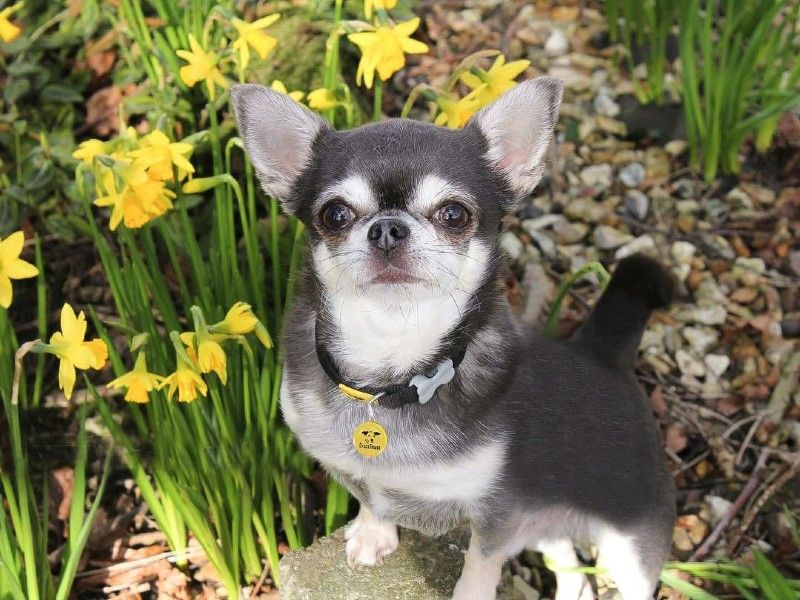Which plants are toxic and poisonous to dogs?
Find out which plants and flowers are toxic to dogs so you know which ones to avoid at the garden centre.

Plants and flowers are a great way of bringing your home to life. But a beautiful bouquet or a majestic monstera could pose a danger to your beloved pup. Here are some of the most common houseplants to steer clear of if you have a dog, and our top tips on how to make your garden friendly.
Devil’s Ivy, among other popular ivy plants, has moderate toxicity to pets. If ingested, symptoms can include mouth and stomach irritation, excessive drooling, foaming at the mouth, swelling of the mouth, tongue and lips, vomiting, diarrhoea.
Snake Plants are common in office spaces due to their low maintenance needs. Although used as herbal remedies in some parts of the world, the plants are also poisonous if ingested and can cause the tongue and throat to swell. The plants are even more toxic to dogs, which can suffer from nausea, vomiting, and diarrhoea.
Cacti are not necessarily poisonous for dogs (although some types may be), but dogs can still be harmed by the spikes and thorns typical of this type of plant.
Aloe Vera is often used as a medicinal plant for humans but can have a moderate level of toxicity for dogs. Ingestion can cause vomiting, diarrhoea, lethargy, depression, anorexia and tremors.
Peace Lilies are native to tropical rainforests of America and south-eastern Asia. These are evergreen perennial plants with large glossy leaves and flowers surrounded by white spathes that may cause, if ingested, oral irritation or burning, drooling and vomiting.
Dracaena, also known as the Madagascar dragon tree or cornstalk plant, is a common office ornamental plant from Madagascar, popular for its clusters of twisted stems at the top of which develop rosettes of long, leathery green leaves. If any part of this plant is ingested by a dog it could cause excessive drooling, vomiting, weakness and loss of coordination.
The Flamingo Plant is a tropical American plant characterized by waxy looking decorative dark green leaves and grown as houseplants. All parts of this plant contain poisonous compounds that can cause oral irritation and swelling, drooling, vomiting, and swallowing difficulties, if ingested.
Weeping Fig, also known as a Ficus or an Indian rubber plant, is native to India and Australia. It is a very common evergreen houseplant characterized by a brownish trunk (sometimes braided for ornamental reasons) surrounded by dense foliage. It has been used in indigenous civilisations due to its medicinal properties, but these same compounds can be quite toxic to dogs.
Rhododendron has over 850 species, native to the more northern parts of southeast Asia. They may be deciduous or evergreen plants, with spirally arranged leaves, and the most common plants in households have clusters of large, coloured flowers. Historically, they have been used in traditional medicine, but some have also been used as poisons! Many of the ornamental shrubs are responsible for intoxication in pets, resulting in vomiting, diarrhoea or constipation.
Sago Palm is native to China and Japan, and a common household ornamental shrub. Some countries use it as a source of food starch; however, it contains toxins that can be potentially fatal to dogs, causing diarrhoea, sometimes with blood, or constipation and liver damage.
Poinsettia is a popular Christmas decoration in the UK and Ireland due to its distinctive red leafy bracts, bur depending on the variety can come in pink or cream. Although beautiful, ingestion of this plant can be very harmful to dogs, inducing vomiting, and diarrhoea.
Swiss Cheese Plant and other plants of the philodendron family, like heartleaf and fiddle-leaf plants, have a toxicity level of mild to moderate for dogs. They can cause irritation of the mouth and throat, pain and swelling of mouth, tongue and lips, excessive drooling, vomiting, difficulty swallowing.
This list is not exhaustive. If a dog has ingested (or you suspect they have ingested) any of these call a vet immediately.
Top tip: bookmark this page to your mobile phone’s homepage for easy access while at the garden centre!
Your garden can be your pup’s perfect paradise. Find out how to make your garden dog friendly.


